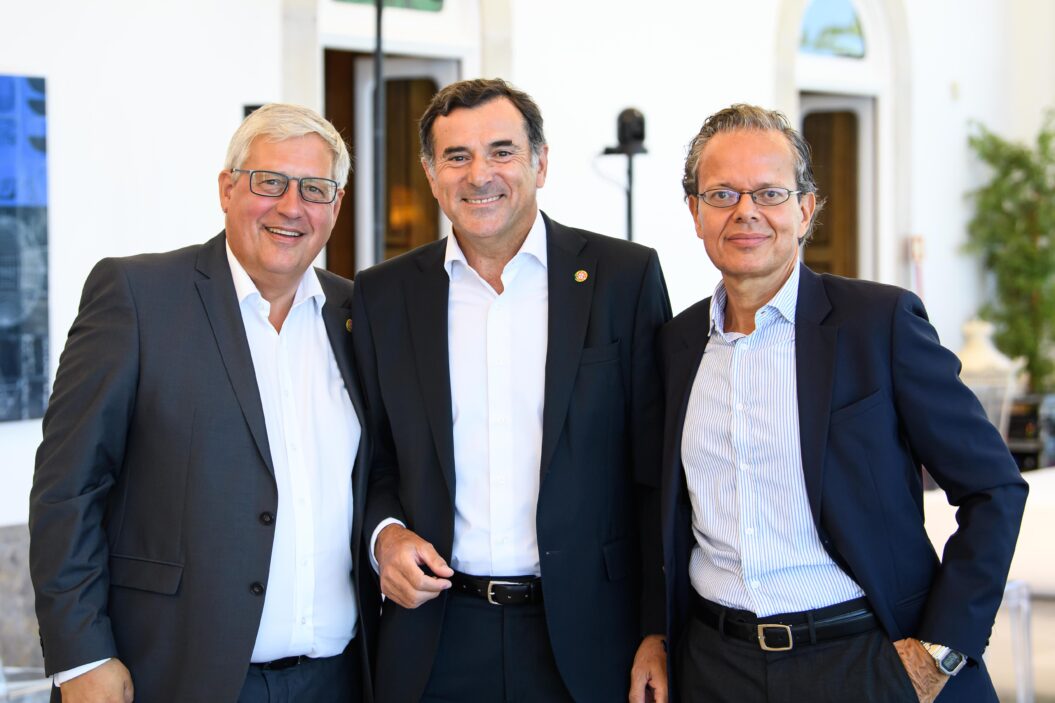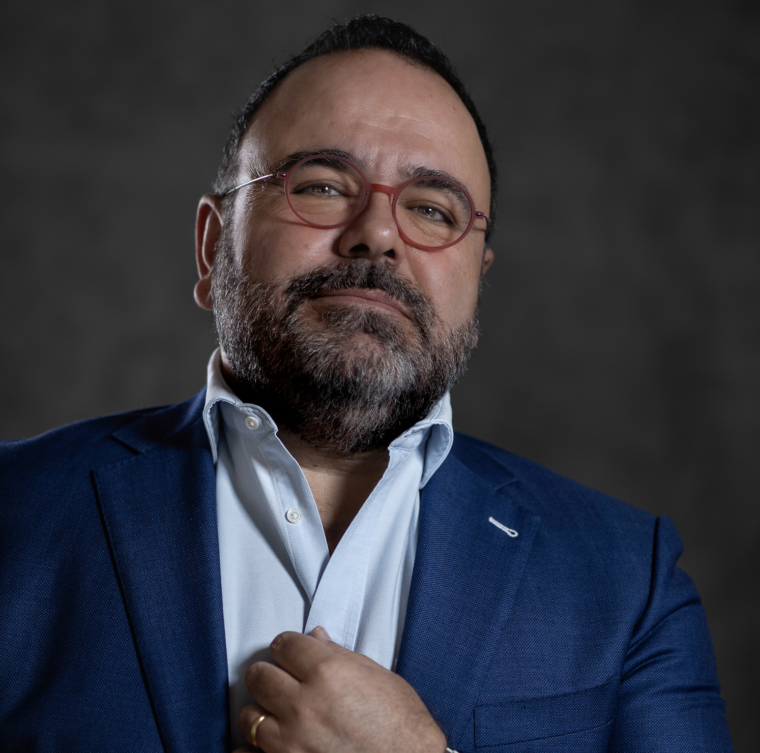The Portuguese Diaspora Council has a new strategy that involves boosting the proposals put forward by the network of councillors. In response to written questions, three of the council’s leaders, António Calçada de Sá, Paulo Morgado and Pedro Pereira da Silva, explain the objectives.
1- How did the Portuguese Diaspora Council come about?
The Portuguese Diaspora Council was created in 2012 as an initiative of the Presidency of the Republic, together with twenty-two founding members, with the aim of helping to boost and strengthen Portugal’s image and prestige in the world. Among the various objectives was the support of a network of global advisors who, due to their prestige and influence, had the possibility, motivation and interest to promote initiatives in favor of Portugal in the areas of investment, innovation and science, health, art, culture and citizenship.
2- What are the council’s current goals and future projects?
The new strategy launched by the current board and supported by the Presidency of the Republic and the Ministry of Foreign Affairs has the main objective of strengthening and complementing the legacy received and relaunching the foundations of a more modern, broader, stronger, younger and more inclusive diaspora with projects, traction and impact on all five continents and in the various regions and countries. At the beginning of this mandate, the number of Portuguese councillors in the world was around 80, and now the network consists of 200 councillors on five continents and in more than 40 countries. To this end, various projects have been launched, including:
- Diaspora + Erasmus: with the aim of promoting knowledge of Portugal and academic contact between Portuguese descendants and Portuguese universities and companies through summer campuses, postgraduate courses, internships in Portuguese companies, etc.
- Agreement with the Global Network (of the AEP Foundation) and the Council of Communities to identify Portuguese businessmen and women around the world with a vocation and interest in helping Portugal.
- Portugal Ponto Pt project: digital platform for teaching Portuguese around the world.
- Launch of the Diaspora Regional Centers to ensure the implementation and follow-up of the various projects through local coordinators.
- EurAfrican Forum (EAF): maintaining and strengthening the EAF, which is currently achieving impressive numbers in terms of representation, impact and attendance, as can be seen in the 2022 and 2023 editions: the President of the Portuguese Republic, more than 10 African and Portuguese ministers, senior representatives of the European Union, the UN and NATO, businesspeople, academics and influencers. The event is attended by more than 500 people a day for two days and has enormous media coverage and impact.
- In 2024 it is planned to launch EuroAmericas and the Youth Diaspora.
3- What kind of actions have you been promoting?
All the actions mentioned in the previous point are reinforced at international events and meetings with the diaspora, taking advantage of visits abroad by the President of the Republic and the Government. It’s also important to mention that the All in One platform (a sort of private LinkedIn) has been launched, which “connects” all the Portuguese in the diaspora network by continent, region or country, by sectors and/or areas of activity and interest, allowing them to be in immediate direct contact (online).
4- What are the challenges of mobilizing the diaspora?
We have to find all the Portuguese who are motivated and interested in helping Portugal in the various areas of action of the diaspora. These are very specific projects that can help strengthen Portugal’s role and image in the world. These are projects that can help Portuguese companies and entrepreneurs outside Portugal and within Portugal.
5- How can entrepreneurs around the world help the Portuguese economy?
For example, by investing in Portugal, bringing their companies, their experience and talent to Portugal. But also by helping other Portuguese companies with their internationalization projects.
6- Do you feel that they are willing to get involved?
Willingness depends on the quality of the projects launched, the impact they can generate and each entrepreneur’s own motivation.
7- What about investing in Portugal? In which areas?
It depends. It would be normal for them to invest in the areas or sectors they dominate, but they can also invest in areas of growth or with greater potential in our economy.
8- Is our diaspora underused?
Until now, the diaspora based its intervention more on the promotion of events that serve to promote Portugal’s presence in the world and create a spirit of togetherness among the various councillors.
However, due to scheduling issues, not all councillors were able to take part in these events, so it was necessary to find a formula that could broaden everyone’s contribution to the diaspora, in the form of proposals and projects with great implementation capacity. This is how the idea of Regional Diaspora Hubs was born, allowing for a “bottom-up” movement that complements the events organized by the diaspora.
9- The board is divided into hubs. What are they, how do they work and why this strategy?
The Regional Diaspora Hubs are North America (East and Canada, West), Central and South America, Brazil and Africa, coordinated by Pedro Pereira da Silva, and Europe (West, “East” and Spain) and Asia, coordinated by Paulo Morgado. The main objectives of these groups can be summarized as follows:
- To increase/consolidate the diaspora, namely by increasing its visibility and relevance in the economic and social context;
- Identify potential advisors for the diaspora;
- Encourage/strengthen direct networking (between advisors) and indirect networking (“foreign influencers” who will contribute to an enlarged diaspora);
- Sharing the economic and business climate of the countries/regions;
- Facilitate access to international clients for companies in Portugal;
- Encouraging investment in Portugal (including building a framework for Portuguese investment in specific regions/countries);
- Bringing Portugal to the world, namely through actions in education and science, art and culture or citizenship in general.
- Sharing benchmarking of international successes for potential applications in Portugal.
So that the participation of people living in the various countries could be more effective, translating into concrete proposals and projects to improve Portugal, we defined a set of rituals, which include i) internal communications, ii) regular meetings, iii) events, iv) production of documentation (internal and external), v) presence in the media (in Portugal and abroad).
10- How does the council relate to Aicep delegations and embassies?
At the moment, coordination is still very informal. We want to be able to define a RACI (responsible; decision-maker; consulted; informed) that distributes responsibilities between entities with objectives that converge with those of the diaspora, in order to exploit maximum synergies between the various organizations. We are certain that the business, scientific and cultural vision brought by the councillors, all of whom are active in organizations that position themselves as innovators, can only complement and bring up-to-date the embassies, chambers of commerce, Aicep delegations and other entities whose mission is to increase Portugal’s presence in the world.
11- What can the government and the President of the Republic do to boost the attraction of the Diaspora?
The participation of the President of the Republic and senior government representatives in the various diaspora events has brought great visibility to our work and, above all, a sense of state commitment. However, we want to go further, taking advantage of the proposals and projects of the regional centers: we want to be able to present, every year, a document with a set of recommendations brought by the various councilors, thus officially substantiating the mission that each one has in belonging to the Portuguese diaspora.
Read the original article here.







